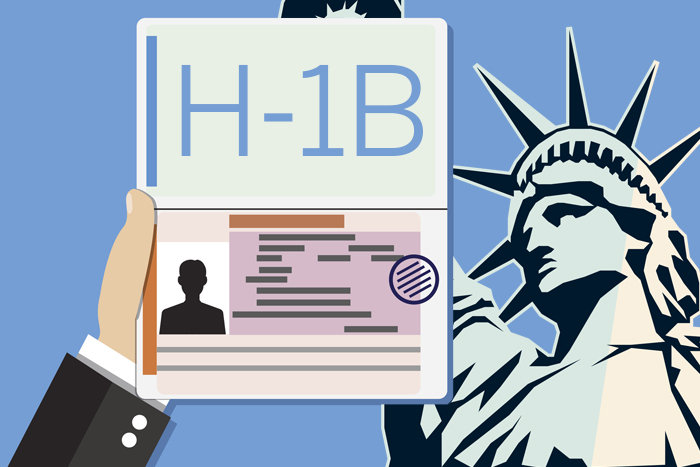
By: Kailin Wu
On June 22, 2020, the Trump Administration issued a proclamation suspending the issuing process for new H-1B visas.[1] The proclamation resulted in several major U.S. companies bringing suit against the administration.[2] These industries have a long history of hiring highly skilled foreign-born workers.[3]
For years, U.S. businesses have employed non-U.S. citizens through the H-1B visa process.[4] An H-1B visa allows “graduate level workers in specialty occupations that require theoretical or technical expertise in specialized field such as in IT, finance, accounting” as well as many other fields.[5] The H-1B visa allows non-U.S. citizens to remain and work in the U.S. for a period of up to six years.[6] According to an annual report by the Office of Foreign Labor Certification, the three most common sectors using H-1B visas are Computer Systems Analysis, Software Development, and Computer Programming.[7] These three sectors make up almost half of all H-1B visas currently in the United States.[8]
In signing the proclamation, the Administration cited the growing unemployment rate due to COVID-19.[9] On October 1st, Judge Jeffery White for the Northern District of California ordered an injunction blocking the proclamation from taking effect.[10] Judge White ordered the injunction on the grounds that “the president does not have unlimited authority with regard to employment of foreign national workers.”[11] Judge White also noted that, despite the unemployment statistics the Administration cited, unemployment is concentrated in service occupations and industries using H-1B visas continue to see job vacancies.[12]
Five days after Judge White order his injunction, the Administration announced new rules for the H-1B program.[13] The announcement was made in conjunction with Homeland Security and the Labor departments and would greatly restrict the number of people eligible to receive an H-1B visa.[14] Almost immediately, several U.S. companies, as well as several universities, filed two new lawsuits against the Administration claiming that the rules would unfairly force 200,000 foreign-born workers in the science and technology sectors to leave the country once their current visa expires.[15]
These new restrictions would make hiring foreign-born workers much more difficult by increasing the wage requirements, thus requiring U.S. employers to overpay for H-1B workers and also limiting the occupations eligible for H-1B visas.[16] These new lawsuits will have a significant effect on the science and technology industries. The plaintiffs argue that roughly a third of the approximately 580,000 foreign-born workers will be deemed ineligible for renewal and forcing them to leave both their job and lives in America.[17] If these new rules are held to be a proper exercise of the President’s power, it will force a significant number of American businesses to overhaul their entire hiring practices.
[1] Danilo Zak, President Trump’s Proclamation Suspending Immigration, Nat’l Immigr. F. (June 23, 2020), https://immigrationforum.org/article/president-trumps-proclamation-suspending-immigration/.
[2] Priyanka Sangani, US court blocks Trump ban on H-1B, Econ. Times (Oct. 2, 2020, 7:12 PM), https://economictimes.indiatimes.com/nri/visa-and-immigration/us-district-court-blocks-h-1b-visa-ban/articleshow/78441953.cms.
[3] Work Permit, https://workpermit.com/immigration/usa/us-h-1b-visa-specialty-workers (last visited Oct. 30, 2020) (explaining the function of H-1B visas and the process of obtaining one).
[4] Id.
[5] Id.
[6] Id.
[7] Off. of Foreign Labor Certification, Annual Report (2016).
[8] Id.
[9] Sangani, supra note 2.
[10] Id.
[11] Id.
[12] Id.
[13] Tanvi Misra, Trump administration unveils new H-1B visa restrictions, Roll Call (Oct. 6, 2020 6:07 PM), https://www.rollcall.com/2020/10/06/trump-administration-unveils-new-h-1b-visa-restrictions/.
[14] Id.
[15] Stuart Anderson, Two More Major Lawsuits Filed Against Trump H-1B Visa Restrictions, Forbes (Oct. 20, 2020), https://www.forbes.com/sites/stuartanderson/2020/10/20/two-more-major-lawsuits-filed-against-trump-h-1b-visa-restrictions/#6cdade29175e.
[16] Misra, supra note 13.
[17] Anderson, supra note 15.

